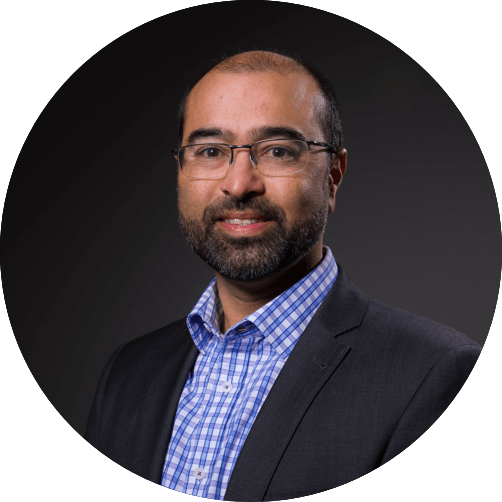Gastric Sleeve
After Surgery
We expect you to be reasonably comfortable after leaving hospital and should be able to mobilise around the home. You should be able to tolerate fluid intake and tablet medications without difficulty.
What happens after my gastric sleeve surgery?
One of the many advantages of a gastric sleeve is it involves keyhole surgery. That means your stay in the hospital will probably be just two or three nights and your recovery should be quick. Pain should be minimal post operatively. Paracetamol (Panadol) should be adequate to relieve any discomfort at home.
Sipping liquid should become easier and easier over the ensuing 2 weeks and attaining the target of 1.5L (of total liquid volume) a day should not be too taxing and without discomfort. If you can not attain this level then rarely we may need to readmit you for rehydration (currently < 1%).
Your diet after gastric sleeve will be restricted to sipping on clear fluids for four days. By the fifth day you will progress to any fluid types.
By the morning of the third day we expect you to be mobile and walking and functioning comfortably. If your next door neighbour bumped into you on your way out of hospital they should not be aware that you have had surgery. You would be, as you will be a little sore from the bump but still fully able to carry on walking comfortably.
At home you should continue to feel well, you should not have a temperature, severe pain nor be unable to mobilise and go outside. You should be progressing. If you are going backwards or feel unwell get checked out and let us know. Do not stay at home to see if issues sort themselves out in the early post operative time. You can become very unwell if you try and ride out an issue which may become critical! Contact us and get checked out. Any doubt get checked out!!!
Gastric Sleeve
After Surgery
What if my bowels aren't working?
How do I care for my wounds?
"You will have some wounds to deal with after surgery. Usually these are no more than 5-10 mm in size and are closed with glue or dissolvable stitches. Very rarely non dissolving sutures or staples are used. If this is the case, you’ll be advised when to come in to have them removed.
Waterproof dressings are applied after surgery and usually changed if required before you go home.
Wound care:
- Keep your wounds clean and dry
- You can shower with the dressings on and pat them dry afterwards.
- If your dressing gets soaked in the shower, take it off gently, dab the area dry and apply a new dressing or band aid
- Keep your wounds dressed for five to six days after leaving the hospital. At this point the wound should be healed and “waterproof”.
- Wound strength will not be great so do not rub the wounds or pull on them. Be gentle. If they become slightly agape then simply treat them like small cuts and put a band aid or some dressing you are not sensitive to over them again until sealed.
- Even though the wounds are waterproof you should still refrain from bathing or swimming for long periods for another week or so (two weeks post operatively)
- If the dressing gets soaked, dirty, itchy or sore remove it, assess the wound and redress with anything you are not sensitive to applying the above principles
- If there is redness around the wound, discharge or increasing pain there might be an infection and we need to review you as soon as possible.
- If you are unsure you can take a photo with your smartphone and email it to us for advice.
When can I drive after surgery?
"Many patients ask us, ‘When can I drive after surgery?’ The answer depends on you. If you are still impaired whilst recovering from surgery you may not be covered by insurance and could be held accountable for any consequences. You should not be driving until you are confident that you are no longer impaired. There is no set time limit on this."
Fitness to drive depends on multiple factors. You should be able to drive when:
- You are mobilising without significant pain or discomfort
- You can handle the vehicle including stomping on the brake during an emergency
- You can concentrate fully
- You are not taking any strong painkillers
When you resume driving you should start with short trips and avoid unnecessary trips, high speeds and long distances.
If your job involves commercial driving, such as driving a truck or bus, you may need clearance from an occupational physician before you can start working again.
When can I work after gastric sleeve surgery?
Most people will return to light duties including office work after about a week or two at home. However, if you have a particularly physical job you may need a longer time to recover.
If your work involves challenging environments eg. mining, travel away from home or you have limited access to drink fluids regularly then a longer period of time off may be required.
If your job involves commercial driving, such as driving a truck or bus, you may need clearance from an occupational physician before you can start working again.
Contact your workplace and discuss what is required and we recommend you get written instructions before your gastric sleeve procedure.
When can I resume physical activity and exercise?
When you arrive home from hospital you should be able to get around the house and self care eg showering.
After the first 7-10 days you should be able to do light activity including walking. You can use a pool to walk or swim (gently) once the wounds have healed after two weeks.
It usually takes about a month after surgery for your energy levels to recover and for the wounds to develop their strength.
After 4 weeks you can resume more strenous exertion including gym training. We encourage including as much regular activity in your daily schedule as possible and also recommend including resistance (strength) training to help reduce loss of muscle mass especially whilst you are losing weight.
What if I'm feeling Light-headed?
What to look out for after a sleeve gastrectomy?
Fortunately major complications after surgery are uncommon however they can be potentially serious and life-threatening if left unrecognised and untreated.
You must seek urgent medical advice if you experience any of the following after your surgery:
- A high temperature (>38 degrees)
- Chills or Rigors
- Sweats
- Increasing or severe abdominal or chest pain
- Persistent nausea and/or vomiting
- Persistent diarrhoea
- Bleeding
- Redness, swelling or discharge from you wound
- Inability to tolerate liquids
- Shortness of breath
- Palpitations
- Cramping leg pain
- Black bowel actions
In case of emergency you should call an ambulance or go to the nearest emergency department.
The Emergency Department at SJOG Murdoch offers a reduced fee of $50 in the recovery phase up to 28 days post discharge from hospital.
If you need to visit an Emergency Department you should insist that your Surgeon is contacted and informed. If you are concerned enough to come to an Emergency Department we want to know.
You should NOT be experiencing severe pain, fevers or vomiting postoperatively or after going home.
You should NOT be deteriorating; you should be improving by the day.
If in doubt contact our office during business hours for advice or after-hours return to the Emergency Department for review and get them to contact your surgeon or covering member of the Upper GI West team.
Follow up after your gastric sleeve surgery
After-surgery care is a priority for our Perth practice.
You will see our Dietitian within 1-2 weeks after discharge to check how you are progressing and review the transition to the next dietary phases.
You will have a routine follow up with your Bariatric Surgeon about three or four weeks after your procedure. You should contact our office if you have any concerns and if necessary we can arrange an earlier review.
After that we recommend regular review with our Dietitians about every six weeks. We will also arrange medical and surgical reviews with our Bariatric Physician and Surgeons to monitor your progress and discuss any potential issues. Studies show that patients who attend regular follow up appointments achieve better results after surgery.
At 1 year after your surgery and on an annual basis thereafter we will arrange for Nutritional Screening Blood tests to be performed. Your vitamin and mineral supplements may need to be adjusted.
Key Points
At all times, should you have any concerns after your surgery, please call our friendly staff.
If you attend an Emergency Department, please ask them to ring your surgeon or another member of the Upper GI West team.
The Upper GI West approach: New hope for a lighter and healthier life.
At Upper GI West, we are not just here to organise your surgery. After gastric sleeve surgery, we are committed to long-term follow-up. We believe in a relationship built on trust. We talk about your needs, your lifestyle and ways to make your journey as comfortable as possible. That includes helping you to achieve the best results by guiding you after surgery on your psychological and nutritional needs.
At Upper GI West, we pride ourselves on having a strong team of professionals who work together. We have brought together Perth’s most experienced oesophago gastric surgeons. Your surgeon will work with your dietician and physician to give you personalised care before, during and after surgery.


